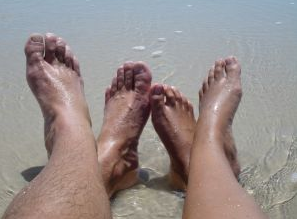
Getting a visa for Australia can be a tough process, make sure you fulfill the health requirements.
This is the first in a new series of posts examining the health requirements for long-term visas in different countries. This week we will look at Australia, a regular competitor in top expat destination polls.
Anyone thinking of moving to Australia will be aware of the strict visa requirements. Australia enjoys high standards of health care, and in order to maintain this quality, most visa applicants will have to pass some type of health exam.
Threats to public health
In order to obtain an Australian visa, or in some cases even to travel to Australia, you must be free of the following diseases, considered “threats to public health”:
Tuberculosis
Those applying for a permanent visa will be tested for active TB (the most infectious form of the disease). This is done by performing a chest X-ray, for children under 11 will undergo a full medical exam instead of an X-ray.
If you’re applying for a temporary visa TB checks will be carried out according to your country of origin and the risk of TB there.
If you’re found to have TB you will not be granted a visa until you’ve undergone treatment and been assessed by a Medical Officer of the Commonwealth (MOC).

Studies show pregnant women who breath polluted air have a higher risk of having underweight babies – how clean is your air?
Pregnant women who are exposed to particulate air pollution, caused by vehicles, urban heating and coal power plants, are at greater risk of having underweight babies.
The international study, the largest of its kind, analysed data collected from more than three million births over nine nations in North America, South America, Europe, Asia and Australia.

Our glossary explains some common health insurance jargon.
The world of insurance can seem a scary place to the uninitiated. Health coverage, life insurance, premiums, co-payments, deductibles, the list goes on. All this insurance jargon can make shopping for and understanding your insurance plan very daunting.
For expats and their families health insurance is usually a necessity, whether provided by your employer or bought yourself. So, what exactly are you getting?

British toddler are the fussiest eaters in Europe, with French and Spanish babies the most open-minded.
A new survey released this week has found British toddlers are more likely to refuse meals than their counterparts across Europe. Over two thirds (69%) of British children under five refuse some food, putting them at the top of the refusal table.
The survey, conducted online, polled over 1,000 UK mums and 1,531 mums in France, Germany, Spain, Italy, Sweden and the Netherlands regarding their children’s eating habits.

A new study has shown the benefits of pregnant women getting the flu vaccine outweigh the risks.
This year the United States flu season started earlier than usual and some states have been particularly badly hit. In Minnesota 60 people have died due to flu-related complications since the season started in the last week of 2012.
National health bodies around the world are encouraging their citizens to get vaccinated against flu this season. People at greater risk from influenza include, young children, pregnant women, the elderly, health care workers and those who work with children. These groups are especially urged to get vaccinated. However, many pregnant women are putting off being vaccinated due to fears it may harm their unborn child.

An education bill in the UAE could force expt families to return home.
Expat parents in the UAE are concerned about a new bill that may require all expat children to be put in school. If expat children are found not to be enrolled at school, expats face losing their residency permits.
State schools in the UAE have resources for children with minor learning difficulties, there are far fewer options for expats in international schools.

Researchers have found evidence babies start recognizing their native language while still in utero.
Recent studies have suggested babies can differentiate between the sounds of their native language and a foreign language at only a few hours old. The results indicate babies begin absorbing language while still in the womb, earlier than previously thought.
Sensory mechanisms for hearing develop at around 30 weeks in the womb. The study shows babies are listening to their mother’s speech for the last 10 weeks of pregnancy and at birth can demonstrate what they have heard.

The EU Commission is set to introduce guidelines to make it easier for prescriptions to be recognised in other countries.
If you are travelling around the region or even moving to an EU country you need to be aware of the rules regarding the transportation of medicines across borders. Earlier in December the European Commission adopted EU-wide rulesregarding the details that must be included on a prescription. It is expected the changes will be implemented by 25th October 2013.
The European Commissioner for Health and Consumer Policy, Tonio Borg described the new rules as “essential to ensure patients’ rights to access high quality treatment” across the EU. He added, “These rules will help secure that patients travelling to another Member State get the medicine they need in the country where they are thanks to clear cross-border prescriptions.”

Moving abroad can be a real challenge for a couple, no matter how strong they think they are.
Utopian ideas of an expatriate lifestyle as a couple can be quite romantic, fantasizing about new places to explore and new experiences to be had together. But what happens if reality sets in and your expat lifestyle is no longer a fairy tale?
“It is not a matter of if, it is a matter of when,” said Vickie Andrews, an American expat and counselor at SINEWS Multilingual Therapy Institute in Madrid.
A move to a new country means couples have to adjust to a major lifestyle change in an unfamiliar environment. As expats, couples face challenges they may not have anticipated pre-departure, and these challenges are different from what they would be if the couple were living in their country of origin.

There are a range of apps and websites which encourage healthy living, here are five that stand out from the crowd.
As an expat family abroad, smartphone apps and interactive websites can provide a wealth of information on health and well-being. No language barriers, tricky paperwork or waiting rooms, the rise of the health app has made daily healthcare advice and tips available to everyone. Here are some of the best for general family health.
This app contains more than 60,000 restaurant meal details, from calorie information to fat content. Users can save their favourite meals and use the tracker to keep count of the calories.
Price: Free, but a paid version is available with additional features.
Available: iPhone, Android